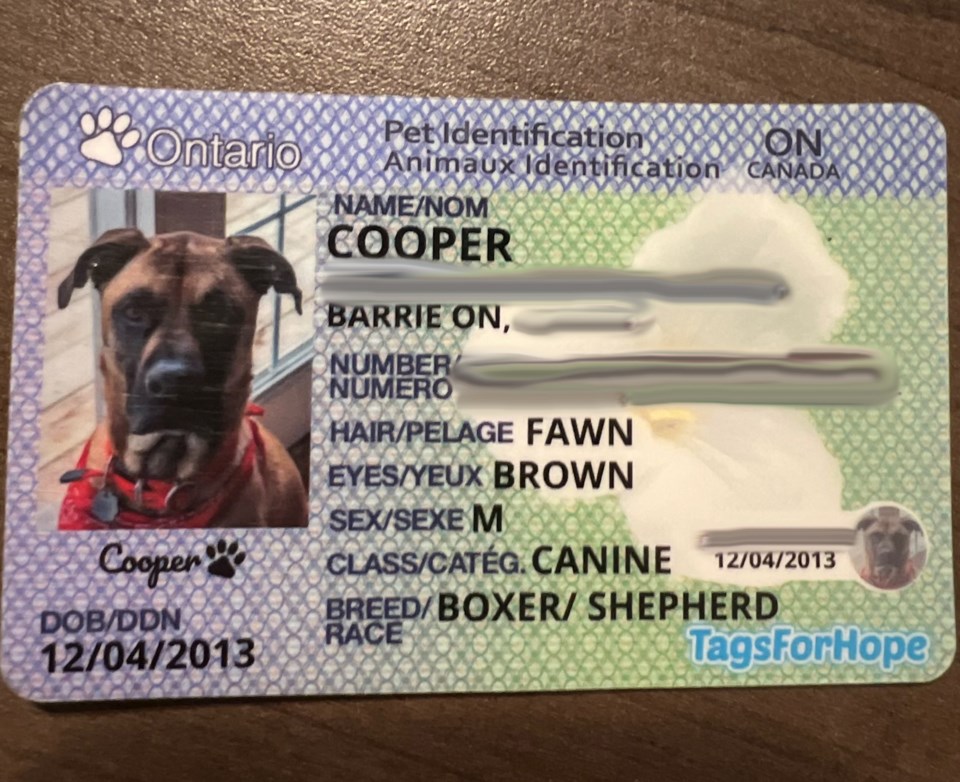Greg Lubianetzky’s routine typically includes a trip to the local community centre for a workout. But he feels a bit unsettled by the process used to examine his proof of vaccine and matching identification.
“It seems kind of silly to have a vaccine certification program where they don’t certify at the end,” he said. “When you go in somewhere and they don’t scan it, the security is nil.
“It’s like putting a great big bolt on your front door and just leaving it open. It’s useless.”
Without scanning, he said, anyone could duplicate and alter a verification.
He was told by an inspector from the health unit that it isn’t mandatory for businesses to scan the QR code on the proof of vaccination. What businesses must do is ensure the name and birth date on the identification match the name and birth date on the proof of vaccination, and ensure that the patron is 14 days past their second dose.
But that process is about to change.
Three months after launching the QR code verification program, the provincial government is adding scanning of the code to the requirement - starting Jan 4.
Perhaps that will allow a little more diligence, said Barrie restaurant patron, Andy Capp.
Capp, which is a pseudonym, has what, at first glance, appears to be a legitimate driver's licence that has been presented to local establishments as identification to accompany a legitimate proof of vaccination.
But a closer examination reveals it to be simply an Ontario pet identification card, complete with a photo of the dog and his specifics.
“The first time that I showed his ID, I just did it being a goofball,” said Capp. “Then I started showing it to see if they were paying attention. Clearly they weren’t because they accepted it as well and moved on to the next person in our group.”
And so the social experiment began.
Capp presented the doggy ID “several” times and was never questioned. One establishment in Woodbridge wasn’t interested in seeing any identification at all.
Interestingly Capp decided once to produce their real identification, which they had duplicated on their cell phone. That Barrie establishment announced that only the original driver’s licence would do and Capp was refused entry.
Capp is hoping that when businesses start scanning QR codes in January, they’ll be more diligent about checking identification as well.
“We want to support local businesses, but safety is paramount during a pandemic so we should all be following the safety protocols in place so we can all get through this together,” said Capp.
The reigion's medical officer of health, Dr. Charles Gardner, said there have been anecdotal concerns expressed over the amount of diligence used during the proof-of-vaccine check or concerns about people using fraudulent means to present certification.
The district health unit has fielded complaints and issued warnings to establishments, but has largely found compliance.
“It’s very, very hard to actually catch this kind of thing and resource it and we don’t have enough resources to proactively do that. We depend on people’s goodwill to do that,” said Gardner.
Complaints are followed up with a phone call, said Tony Makrostergios, program manager of the environmental health department at the Simcoe Muskoka District Health Unit (SMDHU). And although there have been warnings, there have been no tickets.
City officials say they regularly check for proof of vaccination and have not encountered many issues.
“Our staff have dealt with some frustrations and questioning at the door, but over the last three months only about 6 to 10 issues have been escalated to a supervisor — which is low considering we average about 6000 interactions per day at our three major Recreation Centres,” said Rob Bell, Barrie’s director of recreation and culture, in an email.
“In these rare situations, the SMDHU is notified and potentially police/by-law depending on the situation.”
Lubianetzky has decided not to go to eateries for now because he’s not happy with the way they’ve been checking proof of vaccine and identification. The numbers in the gym are few, so he’s not that concerned. But he would feel more comfortable when the proof is scanned.
“If you have the security system there, why not use it,” he said.
